#the house of mourning
Text
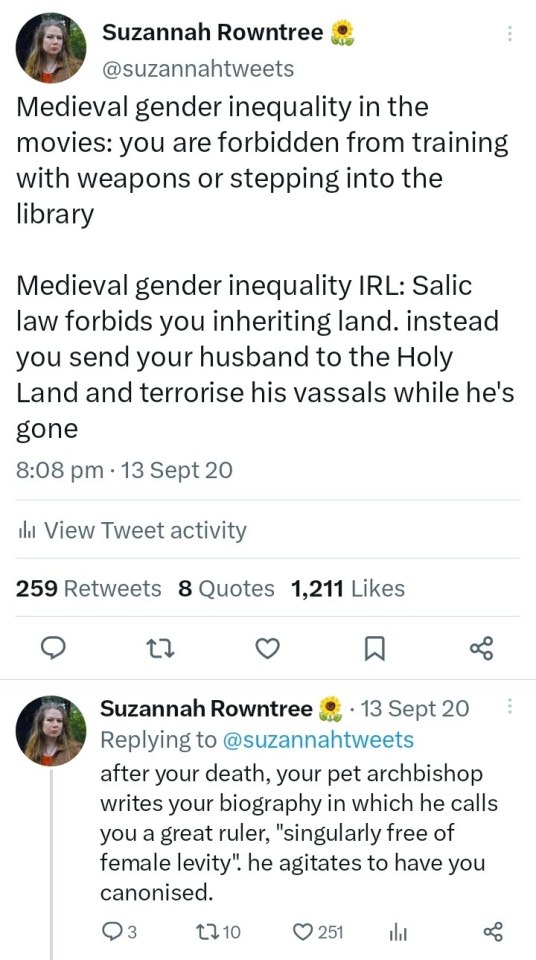
all RIGHT:
Why You're Writing Medieval (and Medieval-Coded) Women Wrong: A RANT
(Or, For the Love of God, People, Stop Pretending Victorian Style Gender Roles Applied to All of History)
This is a problem I see alllll over the place - I'll be reading a medieval-coded book and the women will be told they aren't allowed to fight or learn or work, that they are only supposed to get married, keep house and have babies, &c &c.
If I point this out ppl will be like "yes but there was misogyny back then! women were treated terribly!" and OK. Stop right there.
By & large, what we as a culture think of as misogyny & patriarchy is the expression prevalent in Victorian times - not medieval. (And NO, this is not me blaming Victorians for their theme park version of "medieval history". This is me blaming 21st century people for being ignorant & refusing to do their homework).
Yes, there was misogyny in medieval times, but 1) in many ways it was actually markedly less severe than Victorian misogyny, tyvm - and 2) it was of a quite different type. (Disclaimer: I am speaking specifically of Frankish, Western European medieval women rather than those in other parts of the world. This applies to a lesser extent in Byzantium and I am still learning about women in the medieval Islamic world.)
So, here are the 2 vital things to remember about women when writing medieval or medieval-coded societies
FIRST. Where in Victorian times the primary axes of prejudice were gender and race - so that a male labourer had more rights than a female of the higher classes, and a middle class white man would be treated with more respect than an African or Indian dignitary - In medieval times, the primary axis of prejudice was, overwhelmingly, class. Thus, Frankish crusader knights arguably felt more solidarity with their Muslim opponents of knightly status, than they did their own peasants. Faith and age were also medieval axes of prejudice - children and young people were exploited ruthlessly, sent into war or marriage at 15 (boys) or 12 (girls). Gender was less important.
What this meant was that a medieval woman could expect - indeed demand - to be treated more or less the same way the men of her class were. Where no ancient legal obstacle existed, such as Salic law, a king's daughter could and did expect to rule, even after marriage.
Women of the knightly class could & did arm & fight - something that required a MASSIVE outlay of money, which was obviously at their discretion & disposal. See: Sichelgaita, Isabel de Conches, the unnamed women fighting in armour as knights during the Third Crusade, as recorded by Muslim chroniclers.
Tolkien's Eowyn is a great example of this medieval attitude to class trumping race: complaining that she's being told not to fight, she stresses her class: "I am of the house of Eorl & not a serving woman". She claims her rights, not as a woman, but as a member of the warrior class and the ruling family. Similarly in Renaissance Venice a doge protested the practice which saw 80% of noble women locked into convents for life: if these had been men they would have been "born to command & govern the world". Their class ought to have exempted them from discrimination on the basis of sex.
So, tip #1 for writing medieval women: remember that their class always outweighed their gender. They might be subordinate to the men within their own class, but not to those below.
SECOND. Whereas Victorians saw women's highest calling as marriage & children - the "angel in the house" ennobling & improving their men on a spiritual but rarely practical level - Medievals by contrast prized virginity/celibacy above marriage, seeing it as a way for women to transcend their sex. Often as nuns, saints, mystics; sometimes as warriors, queens, & ladies; always as businesswomen & merchants, women could & did forge their own paths in life
When Elizabeth I claimed to have "the heart & stomach of a king" & adopted the persona of the virgin queen, this was the norm she appealed to. Women could do things; they just had to prove they were Not Like Other Girls. By Elizabeth's time things were already changing: it was the Reformation that switched the ideal to marriage, & the Enlightenment that divorced femininity from reason, aggression & public life.
For more on this topic, read Katherine Hager's article "Endowed With Manly Courage: Medieval Perceptions of Women in Combat" on women who transcended gender to occupy a liminal space as warrior/virgin/saint.
So, tip #2: remember that for medieval women, wife and mother wasn't the ideal, virgin saint was the ideal. By proving yourself "not like other girls" you could gain significant autonomy & freedom.
Finally a bonus tip: if writing about medieval women, be sure to read writing on women's issues from the time so as to understand the terms in which these women spoke about & defended their ambitions. Start with Christine de Pisan.
I learned all this doing the reading for WATCHERS OF OUTREMER, my series of historical fantasy novels set in the medieval crusader states, which were dominated by strong medieval women! Book 5, THE HOUSE OF MOURNING (forthcoming 2023) will focus, to a greater extent than any other novel I've ever yet read or written, on the experience of women during the crusades - as warriors, captives, and political leaders. I can't wait to share it with you all!
#watchers of outremer#medieval history#the lady of kingdoms#the house of mourning#writing#writing fantasy#female characters#medieval women#eowyn#the lord of the rings#lotr#history#historical fiction#fantasy#writing tip#writing advice
29K notes
·
View notes
Text
this heartbreaking segment from the end of The House of Mourning by @suzannahnatters 🤝 Till We Have Faces
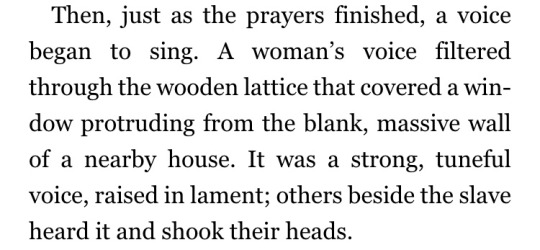
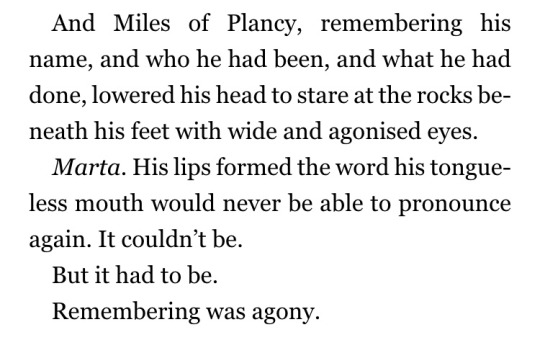

18 notes
·
View notes
Text



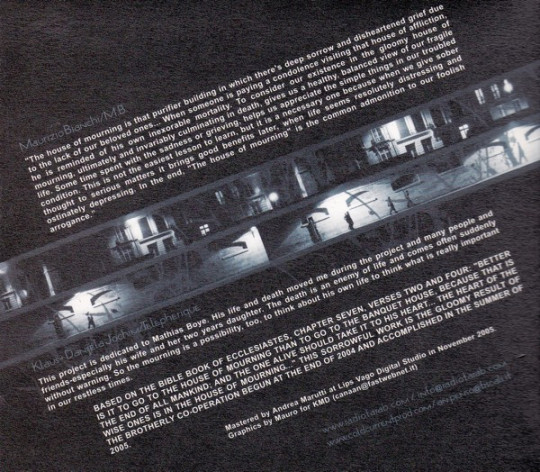

Album Art for:
Maurizio Bianchi & Telepherique - The House Of Mourning (Radiotarab, Cold Current Productions, 2006)
#album art#album covers#cover art#Maurizio Bianchi & Telepherique#The House Of Mourning#Radiotarab#Cold Current Productions#2006
9 notes
·
View notes
Text
Amity undercut, short-haired Willow, Raeda earring swap, Luz wearing the purple moon necklace, Aladarius real.
I’m satisfied tbh
7K notes
·
View notes
Text
When I was younger, we had a clock in the garage that would sing bird calls every hour, instead of chiming or ticking or the regular things clocks do. (......I am fairly sure it was exiled to the garage by my mother, who hated the hollow, tinny sound of it.) Anyway, I mostly remember that clock because the mourning dove call was so distinctive---twoo, twoo, too too too, too too too. I can shut my eyes and hear that song, and it taught me to identify it with unerring precision, even though I couldn't pick out another birdcall to save my life.
To this day, mourning doves are one of my favorite birds. and when I caught sight of one perched delicately on my bird feeder I lost my ever loving mind and will take it as a sign of good things to come.
#they are so beautiful!! grey ladies!!!#sad and lovely and stately and flighty I love them!!!!!!!!!#I know it's very nerdy to get hyped over a bird but counterpoint: I have lost count of the sparrows#that eat at my bird feeder.#there are maybe 1-2 female house finches; 1 male cardinal; 1 female cardinal; 2 squirrels; 1 robin#AND ONE MOURNING DOVE I LOVE HER!!!
474 notes
·
View notes
Text
I'm allowed to make this joke, but I love that Jewish death rituals are like:
"Pfeh, for what should I spend $12,000 on a big fekakte box they see only for five minutes before they cover it with dirt?"
"Don't waste my good suit what might fit my nephew Lev if the bum should ever even try to get a real job!"
"Embalming? Don't mind me, I'll rot in the dark."
#There is standardized Yiddish transliteration and I fart in it's general direction#Anyway Jewish ritual plain box simple shift closed casket no embalming#Spend money on bagels for after#There are a lot of prescribed behaviors for how to behave at the Shiva (mourning house calls)#My family observes none of them. We treat it like a family reunion#If you want all my petty family funeral drama though maybe a different post?#But seriously Christian funerals are such a huge scam. Taking advantage of people at their most vulnerable.#If you have an iron stomach go read about what happens to a corpse when it decays in a vacuum sealed coffin#Death#Death rituals#Judaism#jewish#Jumblr#Jew stuff#post o' mine#Clearing out the drafts#Offensive Yiddish accent clichés are for Jews only.#For this we came to America? To get made fun of on the feygele website by our great grandchildren?
326 notes
·
View notes
Text

i'm replaying fe3h :) have some dorogrid
#dorogrid#dorothea arnault#ingrid brandl galatea#fire emblem three houses#fe3h#my art#spanish line “eres un cielo ingrid” living rent free in my mind#still mourning the the A support we deserved#but they can kiss all they want in fanart and fanfic
995 notes
·
View notes
Text

#tumblr#transformers#tf one#ofmd#yuri on ice#ice adolescence#watcher entertainment#watcher#DAMMIT#can't have shit in this house#well tf & ofmd are just chilling#BUT LET ME MOURN#my post
268 notes
·
View notes
Text
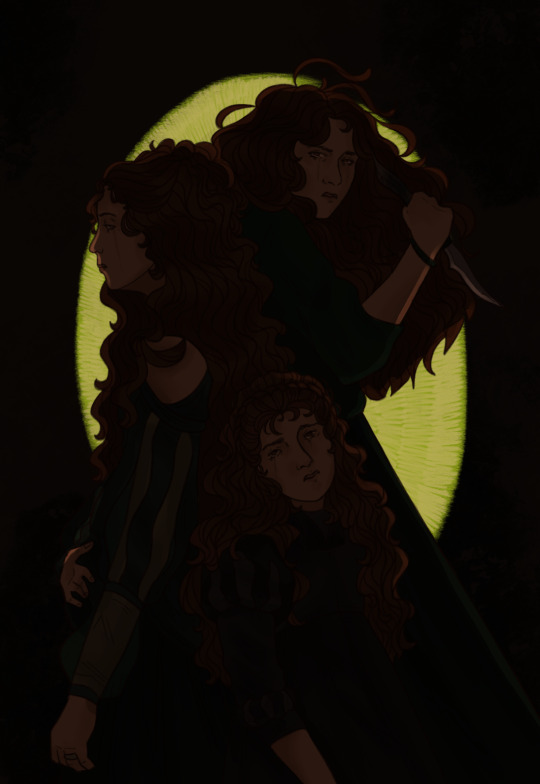
even a worm will turn.
#i just wanted someone to say that they were sorry for what happened to me. if you even care.#little alicent is wearing a black mourning dress for her mother. because i’m evil.#hotd#house of the dragon#hotd art#alicent hightower#hotd alicent#alicent fanart#asoiaf#a song of ice and fire
302 notes
·
View notes
Text
I love that no matter how many fucking times alison gestures to exactly where the ghosts are mike will still look up in the air for them. the fact that he makes an attempt to interact directly with them instead of just always looking to alison is so charming. but also adhd king.
#mike cooper my bestie mike cooper#when julian records him talking about the house and he looks up and goes 'thanks julian'#like... he knows that means he's there and he believes enough to interact with them even when alison isnt there#like. he means so much to me#it would be so easy for him as a character to just always be the straight man#and be going along with it for alisons sake but then roll his eyes#but he doesnt!!! he trusts that they're there! he tries to talk to them when she's not there~!!#yeah maybe he's a little bit scared of them at first but then those are his wife's family!#that's his wife's group of friends and he wants to be included!!#he wants to know their inside jokes. he pays attention. he knows which one is which.#when alison says mary is gone he says#'the one that smells like toast and spies on me in the toilet' like. yeah she had more personality than that#but he remembers who she is!!!!!!!!!!#and acknowledges that alison needs to mourn!#i'm gonna sobBB!!!!!!!!!!!!!!#bbc ghosts#i cant watch ghosts high i get so emotional
325 notes
·
View notes
Text

the he
#the owl house#toh#darius deamonne#toh fanart#the degree that this man was underutilized was criminal#he was mentored by the previous golden guard????? he knew what belos did to him??? and then had to watch belos make a clone of him????#bro like. the dynamics here are absolutely insane#how sick to his stomach do you think darius was when he saw hunter’s face for the very first time?#how sick to his stomach do you think he was when he realized he was resenting an abused child for something he wasn’t even aware of?#do you think darius blames himself?#do you think darius lies awake at night wishing he’d done something sooner? wondering if he could have spared hunter some of his scars?#do you think hunter knows?#do you think hunter wishes he knew how to tell darius that he understands? that it’s not his fault?#do you think hunter longs to know the words of comfort that would have been offered by the man who shared his face?#do you think they mourn together?#my art#myart
679 notes
·
View notes
Text
one of my favourite weird historical facts is that the Assassins once threatened Saladin by sneaking into his tent and leaving one of their distinctive knives on his pillow, along with two cakes of the bread only they made.
"hi, these scones verify that we can kill you. bon appetit!"
(this weird medieval fact brought to you by the House of Mourning line edits, which I am nearly finished!)
65 notes
·
View notes
Text

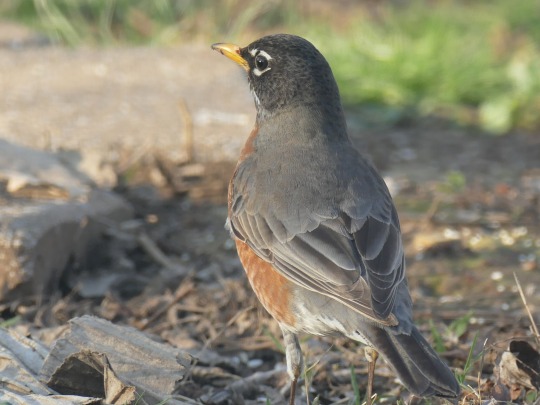
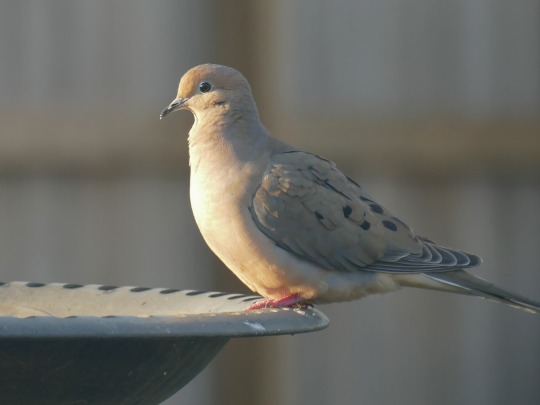

Some backyard birds in the late afternoon sun. Pretty decent lighting.
photos by me. 2024-03-13, Nashville, TN
#birds#birding#birdwatching#birdblr#birblr#american robin#house sparrow#mourning dove#northern cardinal#mine#birb#birbs
209 notes
·
View notes
Text
Yes, Targaryen men are gorgeous. The beauty of a malnourished twink who wasn't sleep well in years but Targaryen women? They're superior in beauty. A powerful woman who can fight, ride a dragon and be kinda psychic? There's no debate in that.
I don't care if you bring your stupid brother-husband with you, let me get to know you better
#house targaryen#rhaenyra targaryen#daenerys targaryen#baela targaryen#rhaella targaryen#rhaenys targaryen#daemon targaryen#aemond targaryen#aegon ii targaryen#aegon targaryen#viserys targaryen#Targaryen women can use me any time of day#laena velaryon#laenor velaryon#forever mourning laena you were too hot to handle
200 notes
·
View notes
Text
An idea that has been spinning in my head for a long time.
(in book) towards the end of his life, Aegon gained enough strength to walk on his own with the help of a crutch. and I would kill i want to see the scene of his last walk through the castle, during which he is overcome by memories and for a few seconds the images of his loved ones come to life.
he hears the sounds of their voices, in the corridors he sees Jaehaerys laughing, running away from the nanny along the corridors, in Helaena's room he sees her singing for a giggling Maelor in her arms, in the window he notices a proudly smiling criston who approvingly slaps the shoulder of a joyful Aemond, who defeated him for the first time, in front of the entrance to the dining room there are images of the cargyll twins, hotly arguing about something. he opens the door and a picture flashes before his eyes of the dinner hosted in honor of Daeron's arrival. he sees his younger brother saying a toast with a wide smile on his face, next to him he notices the dark top of his uncle's head and a little further away the figure of his grandfather, on the other side of daeron sits Alicent, looking at her son with tender longing. this image didn't last more than a few seconds, but it was so vivid and full of life, as if everything was real now.
at the end of the journey through the past days of the rare serene happiness of the family, traces of tears and a bitter smile are visible on Aegon's face. the past has never let him go, but now he stops running away from it. for the first time in a long time, there is no struggle in his eyes, but quiet humility. he does not know the future, but he feels that this is the end of it. and he gives the order to take him to the sept in order to find peace in his last prayer in the name of the living and the dead.

#aegon ii targaryen#aegon targaryen#alicent hightower#aemond targaryen#house of the dragon#daeron targaryen#helaena targaryen#helaegon#maelor targaryen#jaehaerys targaryen#criston cole#otto hightower#gwayne hightower#team green#hotd#my post#bad english#[ I haven't forgotten about jaehaera#This is his swan song with the dead#Yes he is mourning for his then mother who has not yet become a hostage to her fear ]
202 notes
·
View notes
Text
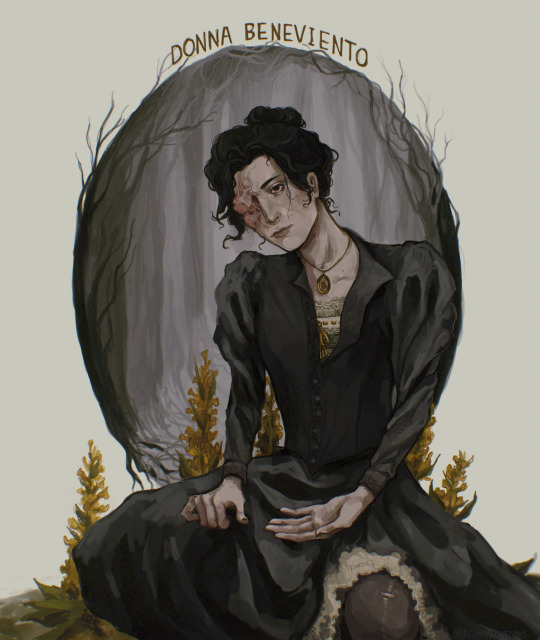
well, occasionally i do think of her <3 every time i revisit village i am plagued by thoughts of donna
don’t repost my art
#not sure how many RE fans follow me but here she is#peak of a corset + chemise under the dress plus a little hair mourning necklace#resident evil#resident evil village#resident evil 8#donna beneviento#house beneviento#my art
1K notes
·
View notes